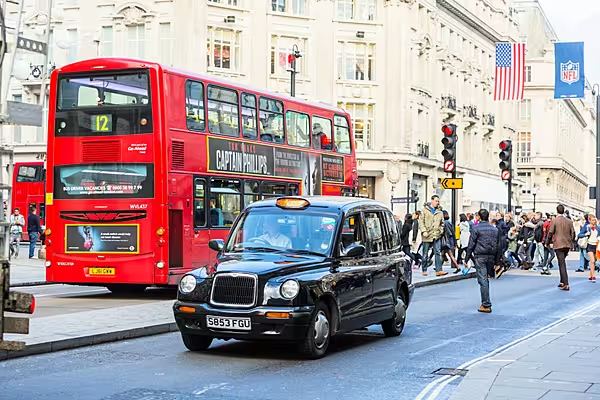With political storm clouds gathering, it's time to grab your Burberry mac.
The luxury brand is one of the few companies exposed to the British consumer to emerge from the aftermath of the general election unscathed. More domestically focused retailers haven't been faring so well, and are proving to be outliers in the FTSE-100, which has shrugged off worries about a hung parliament. It's all a story about consumer confidence and the pound.
Burberry Group Plc is usually a winner when the currency weakens, as it generates the majority of its sales outside of the U.K. Weaker sterling could encourage overseas shoppers to spend more in Britain, although that might be tempered by travelling luxury consumers' fears over terrorism in the wake of the recent attacks in London.
Sterling Slump
Meanwhile, the slump in sterling means further pressure on retailers' costs, as many pay for the majority of the goods they buy in dollars. Some store groups may have been able to hedge at the more favorable rates that prevailed before the election, but that protection won't last forever. On top of that, there are signs that consumers' appetite to spend is already weakening, as inflation edges ahead of wage growth.
This explains the sharp drop in clothing giants Marks & Spencer Group Plc and Next Plc, and the slump in Dixons Carphone Plc. The decline at pub chain Greene King Plc points to fears that Brits might temper their enthusiasm for eating and drinking out. Grocer J Sainsbury Plc is being punished for its acquisition of home goods retailer Argos, which is particularly exposed to less-affluent consumers and sterling.
Since the Brexit vote, the U.K. consumer has remained remarkably resilient. But the Great British Shopper has already started to wobble. The prospect of a further period of uncertainty, now that Theresa May's election gamble has fallen short of its promise for stability, will do nothing to steady their nerves.
News by Bloomberg, edited by ESM. Click subscribe to sign up to ESM: The European Supermarket Magazine.











